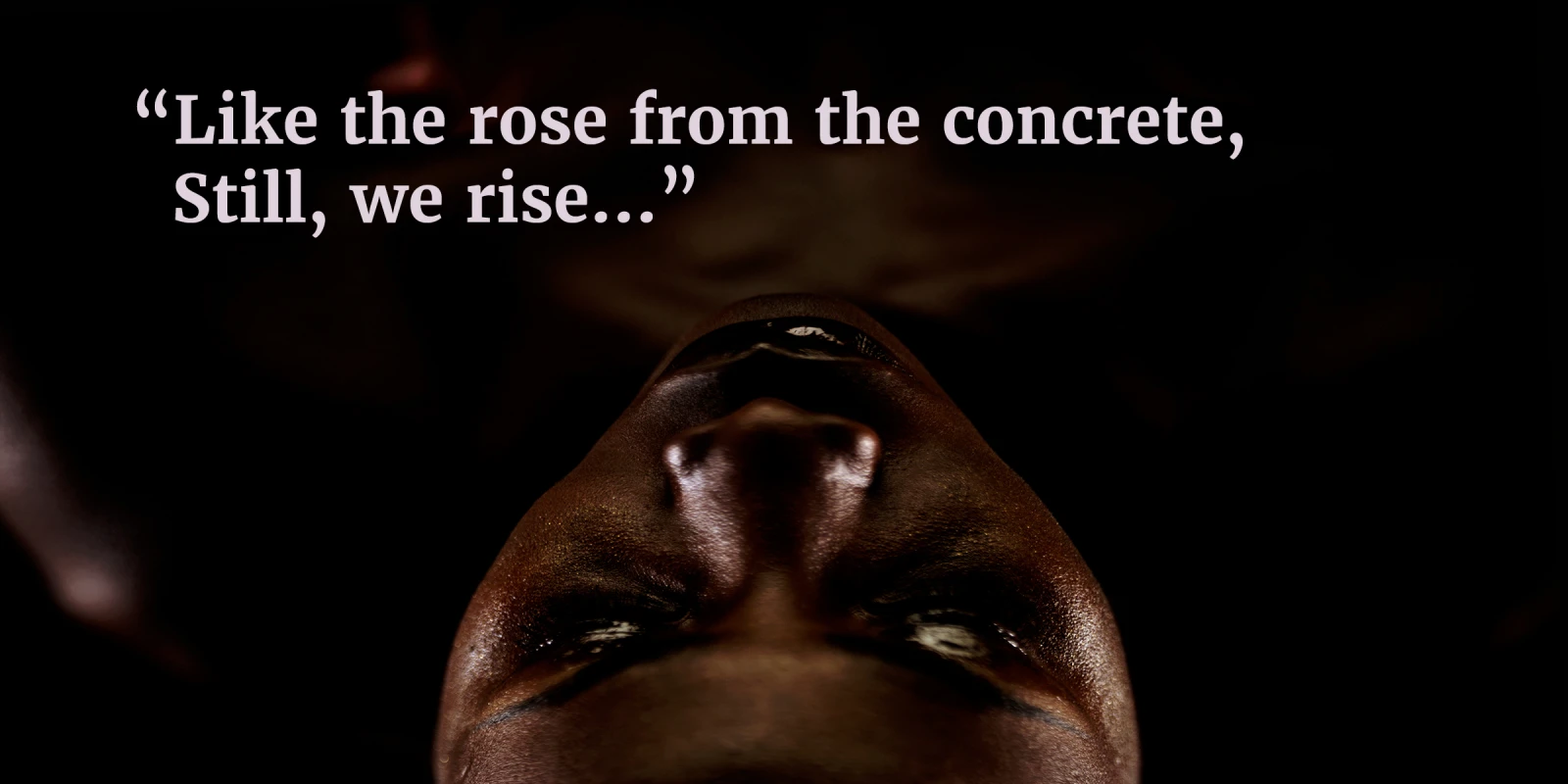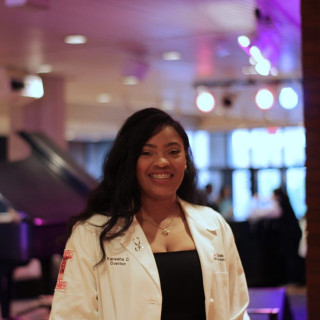This is part of the Medical Humanities series on Op-Med, which showcases creative work by Doximity members. Do you have a creative work related to your medical practice that you’d like to share? Send it to us here.
Born with melanin and void of plight For in every darkness, I shed my light And bring out smiles, never a fight Not just because my gender mother’s humanity both day and night But ‘cause it gives existence a reason to always feel so right.
Created with a heart to embrace the world with delight And give every creature a reason not to alight For the earthly train always has a stop sign on sight But to blur the stop signs remains the least of my might Thus keep the final destination a secret under protection like a knight.
Behold fury like from the depth of the abyss Spinning my horizon like the globe on its axis As pain tags my trait without fear of my systemic armies And build its nest like a lost swarm of bees Creating an existence full of pleas. Looking at the broken mirror, it's not me But her daunting reflection I see In her eyes is my pain, oh Lord, please help me Worlds separated by experience, yet equilibrated by the powers that be.
Holding bags of tears and heavy with sorrow Not even her strength can make it through tomorrow We are of the same in my brain Yet treated like a species of spoilt grain Whose place is beneath even those on the train For not even her health an iota of sane As all that gives the suppressor joy is her pain.
Ignored by her savior of life for the wealth with which I came Yet Her being a Me remains a hidden fame Where I am treated with scorn, yet none accepts the blame. Although we all know the truth, pretending is the ultimate game Smiling while I burn like in a furnace flame For who I am is who I was made to be — without shame.
Caught in the web both as predator and prey As my shadow shoves me for a fight down this drawn-out hallway She resurfaces without a smile as she fights the impending decay Burning my happiness like a leaf in wildfire’s way Lighting my torch to the path of change one day.
Expanding my lobes as days wave along For the air alone seem to light the silver line up the sky As it ignites the fuel of life in mankind And give days a reason to come again.
For hope remains, Although life may be heavy Like the rose from the concrete, Still, we rise It is the heroine in me that triumphs And to their surprise We are the blessing, not dressed in disguise.
What was your inspiration?
In my Advanced Anatomy elective course, a Black woman cadaver had a multitude of fibroids in her uterus. As I stood there holding the uterus of this Black woman, I could not help but formulate the life she lived through shared experiences of what it means to be a Black woman in America. Uterine fibroids have a disproportionate impact on Black women and are the leading cause of a hysterectomy. The health inequalities amongst minorities, especially Black women, are disheartening and have risen to a point where they are a public health issue. Black women's voices and Black agency in medicine have been neglected; it has always included unethical treatment, invalidation, dismissal, and other biased judgments rooted in racial stereotypes. My poem helped serve as a voice for both my cadaver patient and me. Although I don't know her whole story, I know we have shared experiences as Black women.
How long have you been doing this activity? What got you started?
Writing poetry has been an interest of mine since middle school. My teacher advised me to sit in on an afterschool program that helped students find their words through poetry. I participated in a few poetry slams in grade school. Nowadays, I just write when I am burning with passion and need to express myself.
Is there anything else you'd like to tell us about your involvement in or views on arts in medicine?
A part of treatment plans for patients includes time to heal. As students and physicians, we spend a lot of time focusing on others and forgetting that we are human and have limits. That is why physician burnout is of discussion today. Arts in medicine give us the chance to reflect on ourselves and provide an outlet for us to heal.
Why did you choose this medium? What interests you about it?
I decided to write this poem because screaming in an empty field no longer provided an outlet for me to release. I needed to find the words instead of just opening my mouth to utter one sound. I needed someone to read it and understand. I needed to be both heard and understood.
How does this submission relate to your medical practice?
This poem reflects the duality of being a Black woman in medicine and my experiences as a Black patient. This poem echoes the inequalities Black women face on both sides of the field of medicine. Many Black women who visit doctors feel unseen, unheard, and misunderstood. Black women often feel misdiagnosed, but clinicians brush off their concerns due to known stereotypes or implicit biases. The same is increasingly true for me as a Black medical student, often feeling overlooked and misunderstood. As a medical student, I know literature supports the idea that standardized testing does not favor students of racial minority or students from low socioeconomic status. So, as I practice for boards, I find myself looking up definitions to words just to understand what the prompt is stating or asking. Meanwhile, test writers are aware of these nuances but still choose to write questions as such.
We are taught, as medical students, to advocate for our patients. However, Black women are often left to advocate for themselves while also trying not to portray the typical stereotypes of Black women. The very same is true of a Black woman training in medicine. I have witnessed microaggressions towards my Black preceptors from their colleagues. We say we want diversity in the medical profession to help close the gap in disparities in health care. Still, when diversity exists, there is pushback and barriers that make it hard for minorities to succeed and be a part of the profession. We say we want to close the gap for health care inequalities, but when minority patients show up for treatment, they are dismissed.
While not every Black woman or every Black medical student has these experiences, it is disheartening to discover how far the needle has moved in terms of equity on both sides of the field. The disparities and inequalities will continue if we do not eradicate the “us” and “them” mentality, identify and work on our own implicit biases, and be open to feedback and change of behaviors. I try to keep my experiences in mind when treating minority populations, especially Black women, and educate patients on their rights to advocate for themselves and ask more questions. My goal throughout my career is to ensure more representation by bringing more Black students through the medical pipeline. If I envision a future that provides underserved communities with equitable opportunities to prosper, I must provide solutions to improve the programs in these spaces. I hope to remove barriers that afflict marginalized communities by helping minorities become successors of the medical profession.
Kanesha Overton is a third-year medical student at Carle Illinois College of Medicine. Her academic interests include health equity and women’s health. In her spare time, she writes poetry, paints, and listens to audiobooks.







